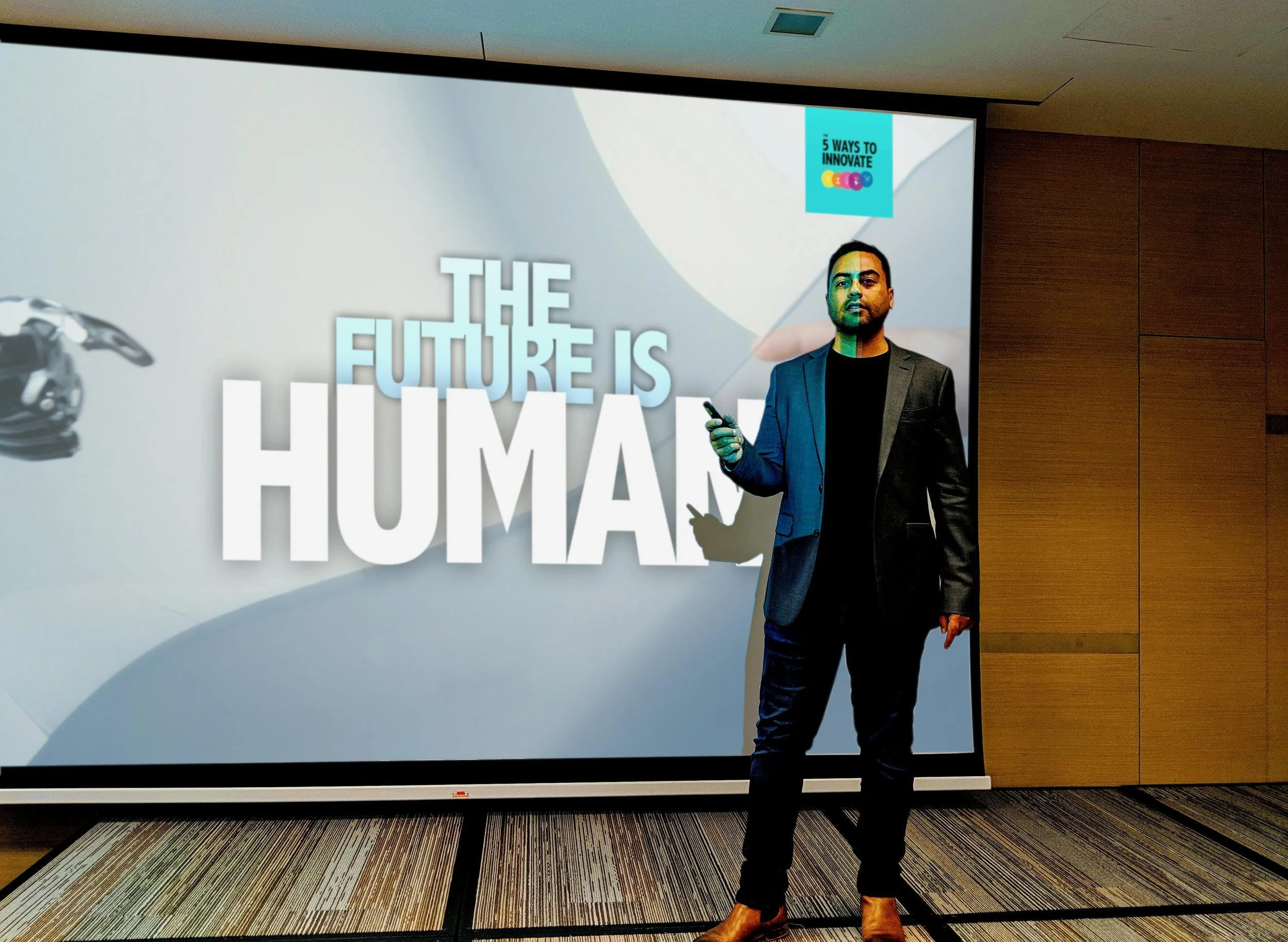Amer Iqbal to Deloitte’s leadership: The future is human
This week, innovation strategist Amer Iqbal delivered a compelling presentation for Deloitte arguing that the future of work is more human than AI - and surprisingly, even AI agreed.
The presentation, which formed part of a debate with renowned author and legal futurist Professor Richard Susskind, challenged the assumption that artificial intelligence will replace human expertise at scale. Instead, Amer made the case for a more optimistic - and human-centered - future of work.
To add a dose of interactivity, Amer ran three informal polls:
A LinkedIn poll, with nearly 60% believing the future of work remains human.
A live audience poll after the presentation showed a near-unanimous 96% agreement.
Even ChatGPT, prompted to simulate a batch of AI responses, revealed that only 21% of “AI peers” believed AI would dominate.
The Case for Humanity
Amer’s argument rested on three core pillars:
1. Historical precedent
Every major technology wave from the industrial revolution to the internet boom has followed a similar arc: initial excitement, a disruptive downturn, and eventual rebalance. Workers shift to higher-order tasks, and technology ultimately creates more opportunities than it replaces.
2. Demographic and economic realities
With ageing populations and declining birth rates across advanced economies, the global workforce is shrinking. To sustain growth, we’ll need productivity gains that exceed what humans alone can deliver—but that doesn’t mean replacing people. It means using AI as a force multiplier.
3. Where tech companies are placing their bets
From Meta investing $5 billion per quarter in immersive experiences that keep humans connected, to OpenAI approving $6.5 billion to acquihire human design talent, tech giants are sending a clear message: human expertise remains essential.
Amer closed his remarks with a note of optimism:
“In this case, whether you answer ‘human’ or ‘AI,’ you’re probably right. But I wanted to give people permission to feel hopeful—and to remember just how adaptable we really are.”
To continue the conversation, follow @ameriqbal on LinkedIn or explore more of his work at 5 Ways to Innovate.

